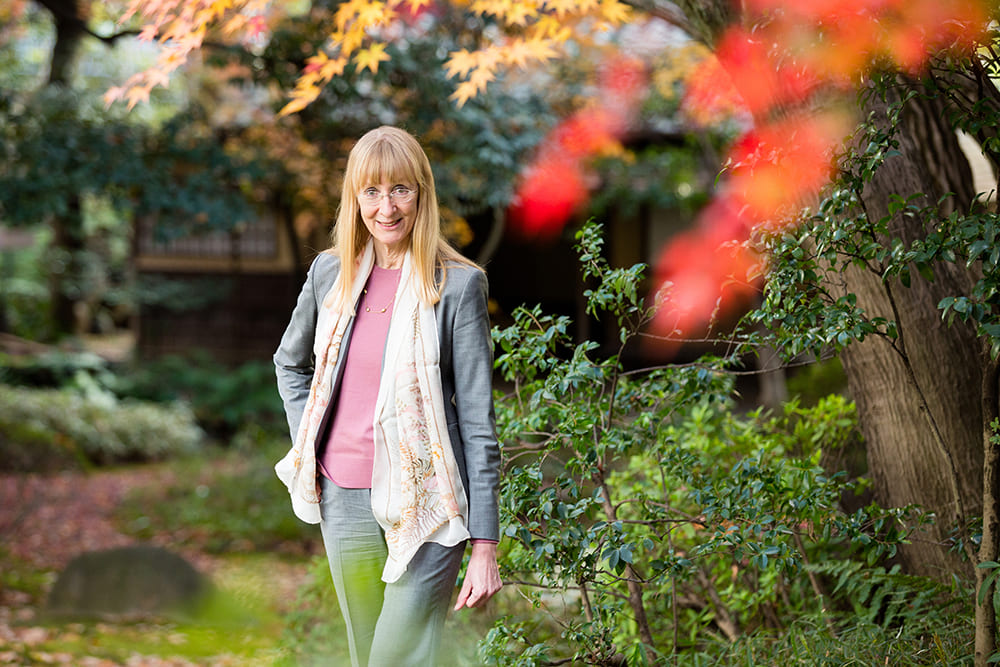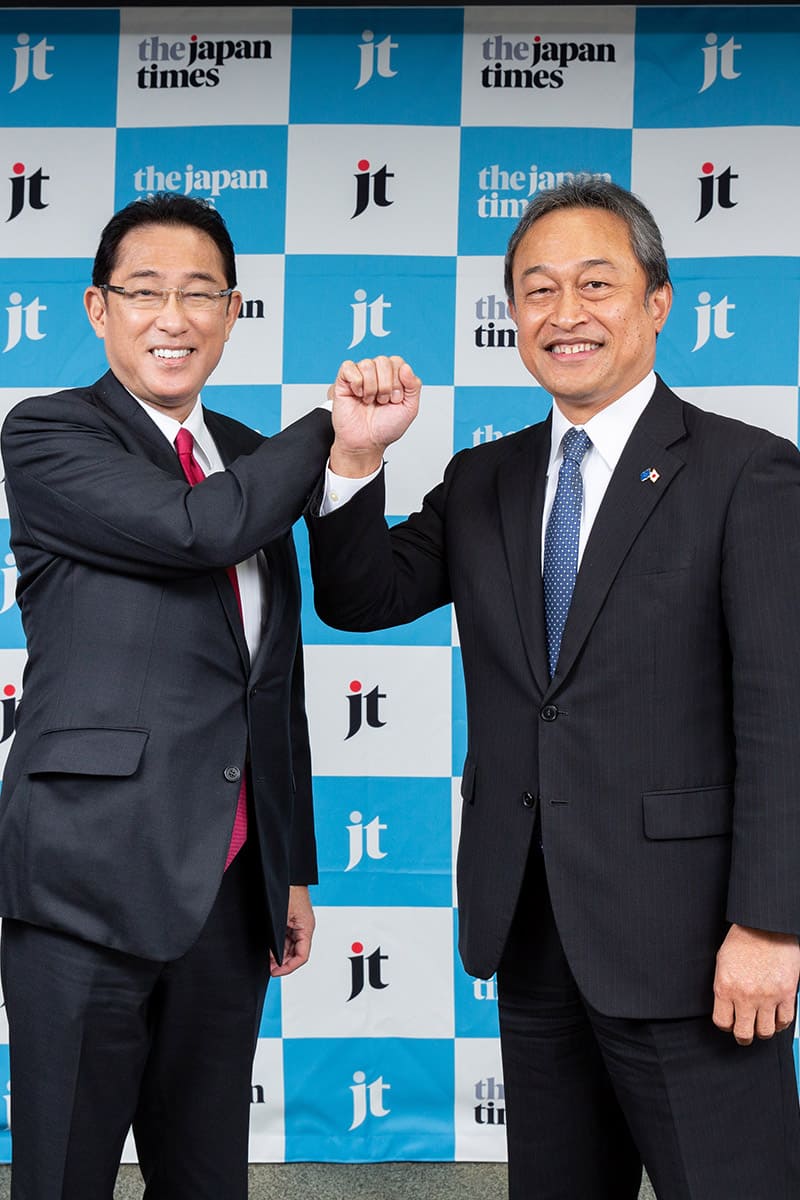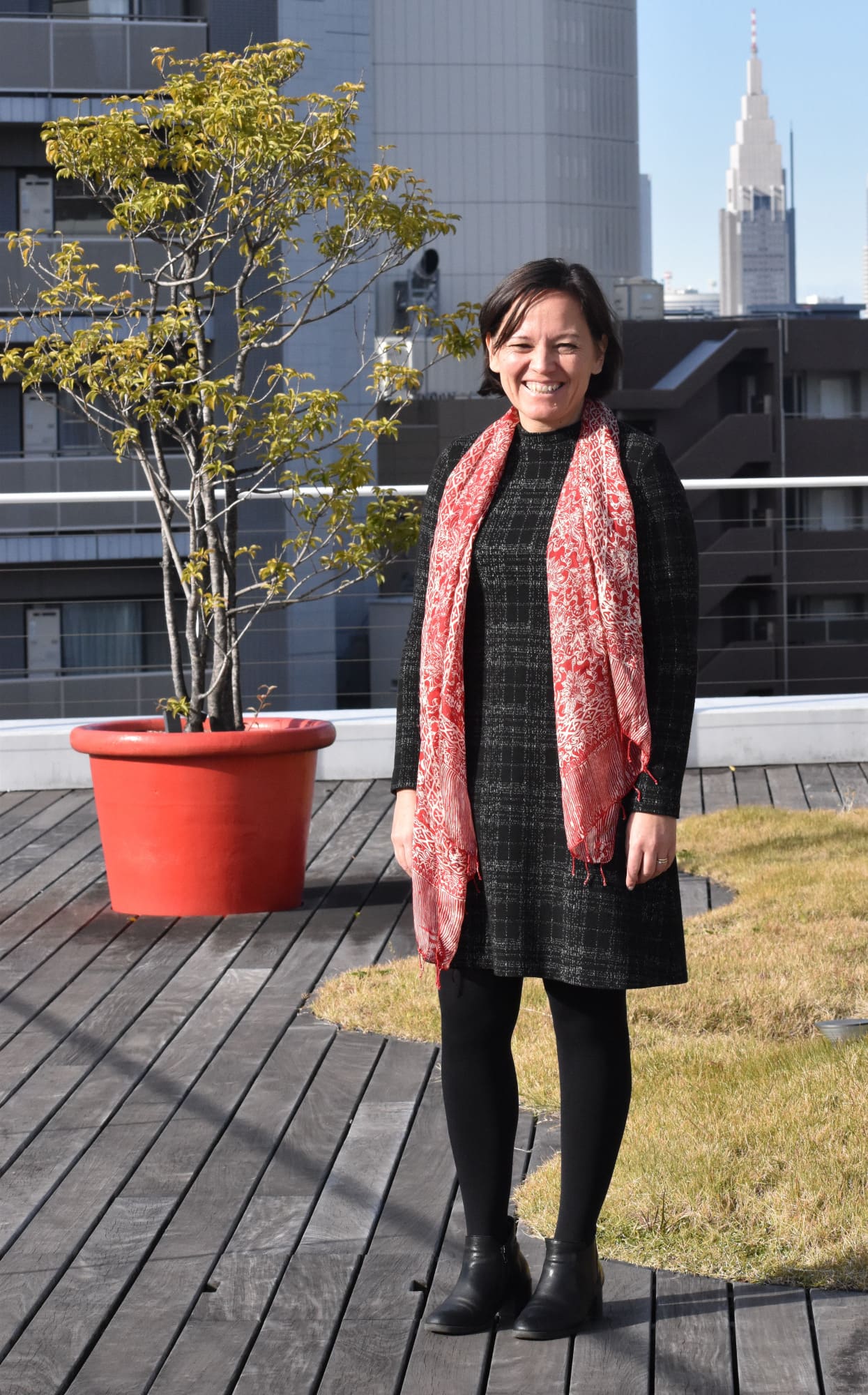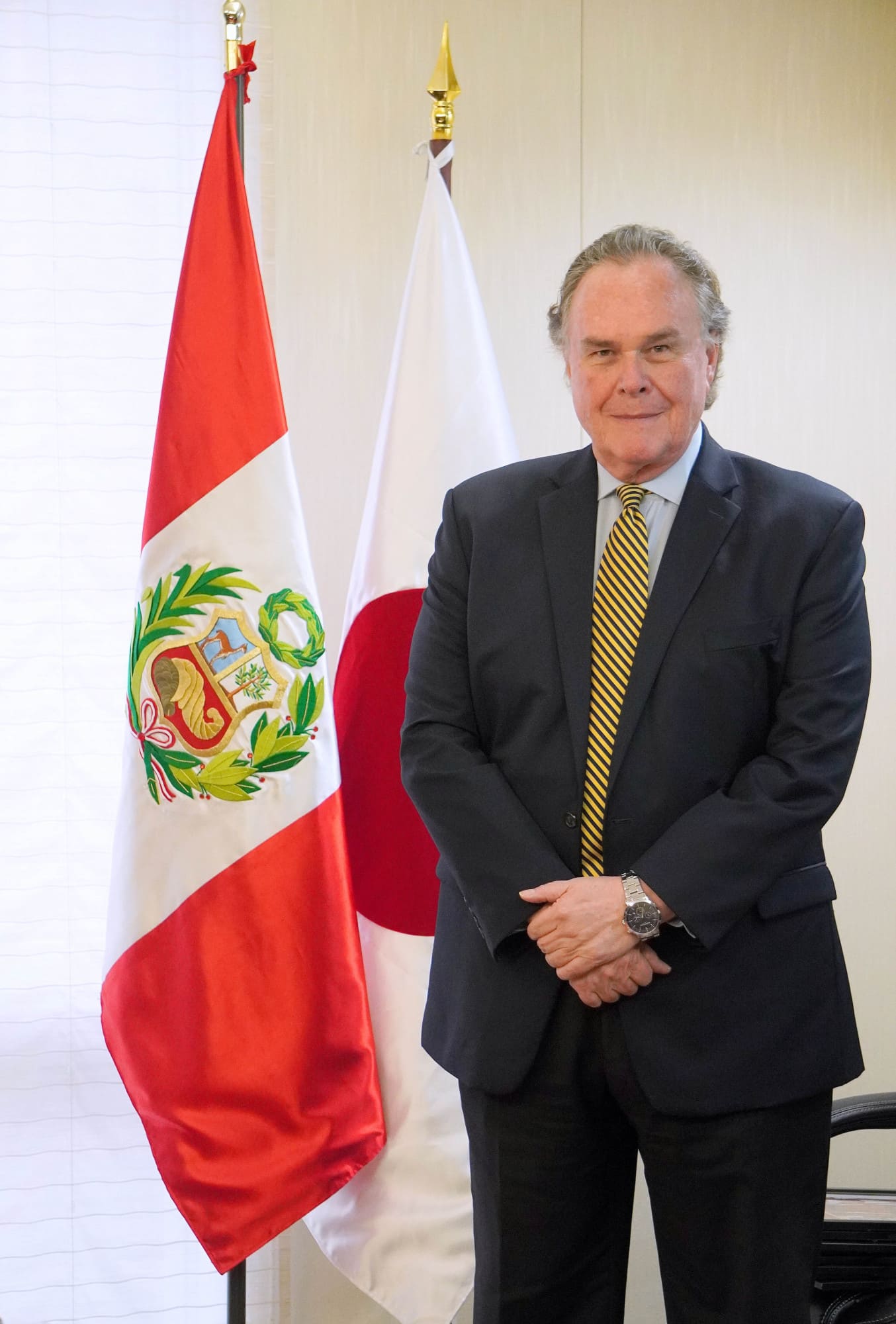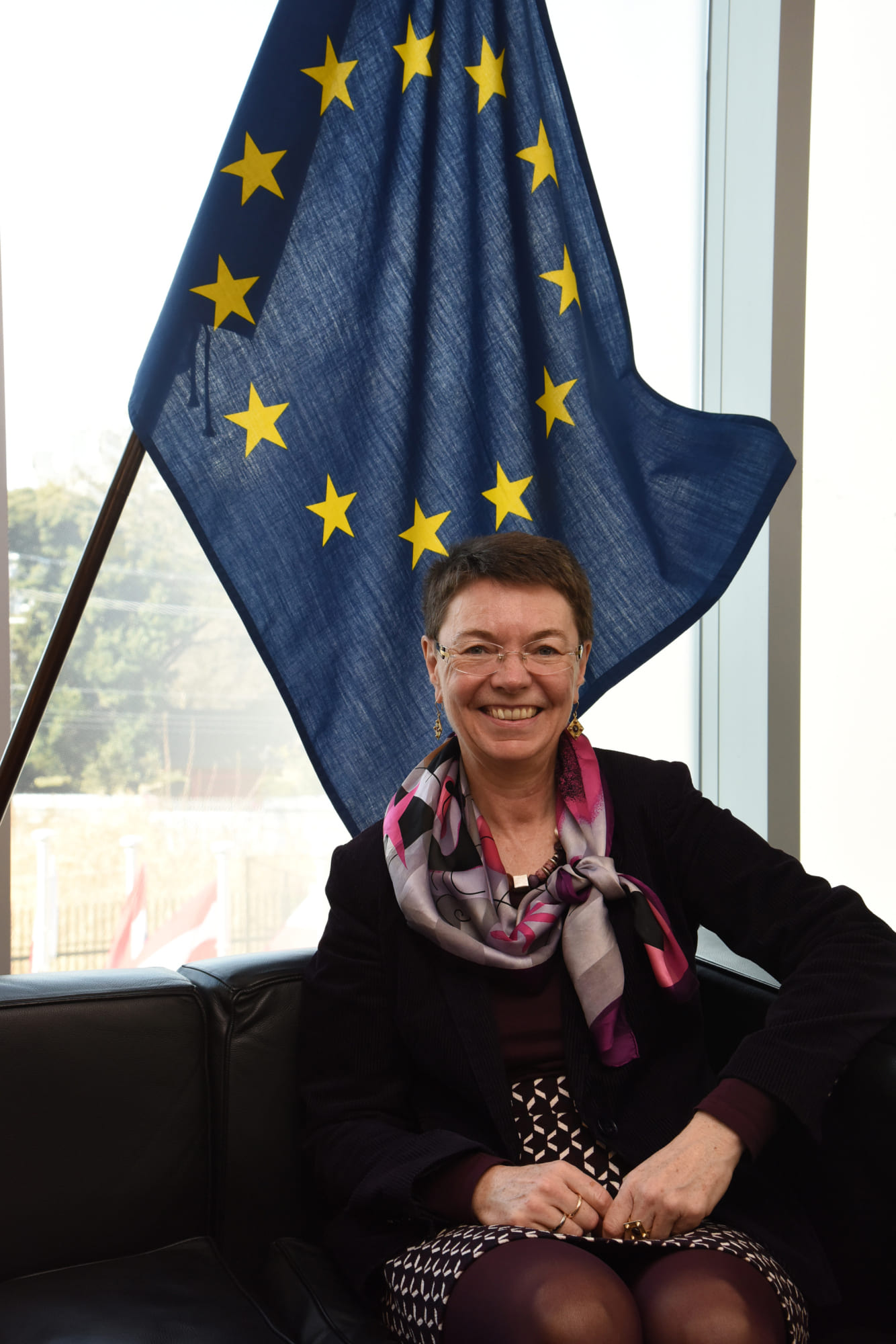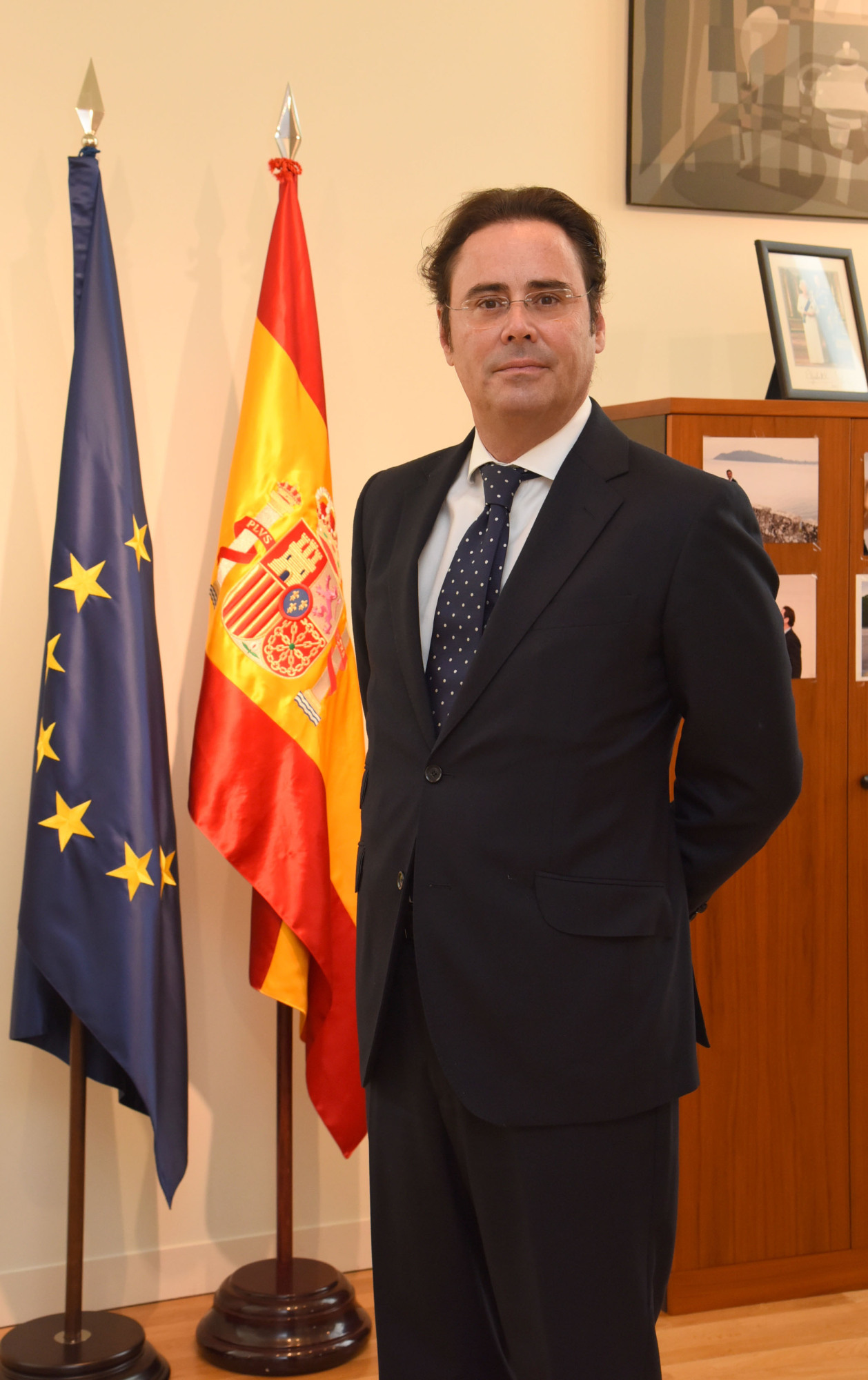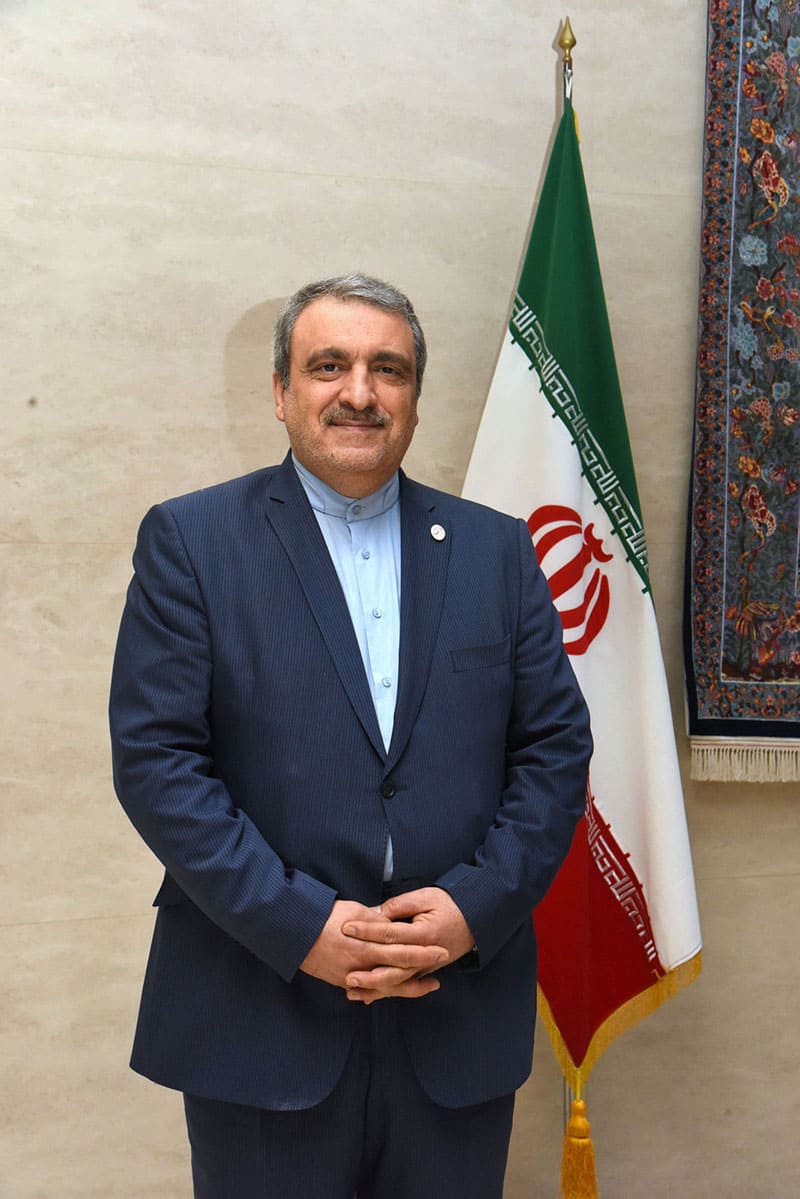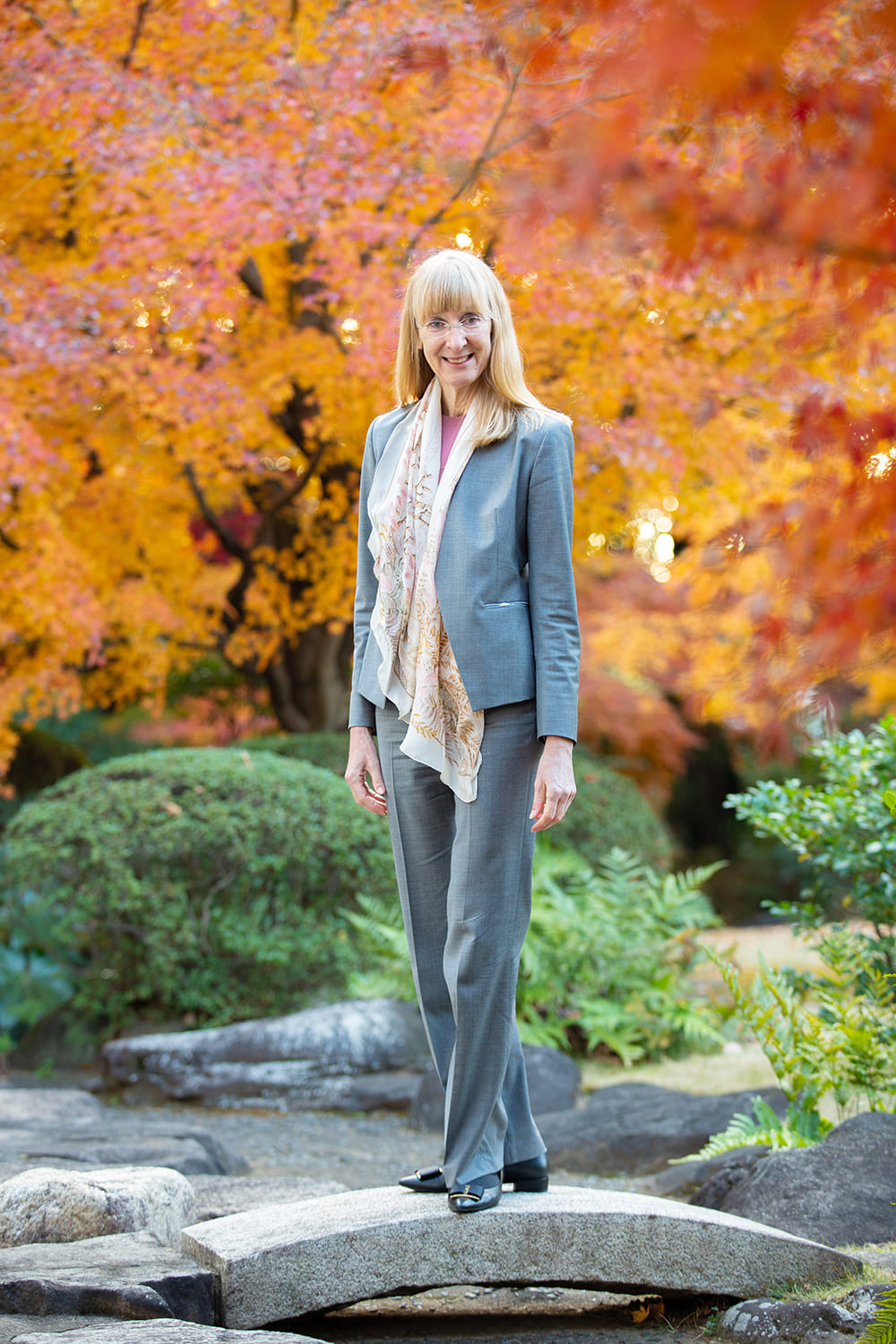
January 04, 2021
German ambassador lives out childhood dream
Ina Lepel, first female envoy, keeps up diplomacy throughout pandemic
- Name: Ina Lepel
- Title: Ambassador of Germany
- URL: https://japan.diplo.de/ja-ja
- Hometown: Cuxhaven, Germany
- Years in Japan: 1.5
Live DJ performances probably aren’t the first thing that comes to mind when thinking about diplomatic outreach during the COVID-19 pandemic. However, this year the Embassy of the Federal Republic of Germany broke with convention by streaming a live DJ Summit concert from its backyard to celebrate the 30th anniversary of German reunification.
The concert, which featured sets from DJs well versed in German music, may be the first of its kind. But breaking new ground is nothing new for Ambassador Ina Lepel, who has served as Germany’s first female ambassador to Pakistan, the first director-general for Asia and the Pacific in Germany’s Federal Foreign Office, and now as Germany’s first female ambassador to Japan.
Lepel’s career, spanning various positions and countries, is the culmination of an interest she had since childhood. “Ever since we had a TV in the family, I enjoyed watching programs about faraway countries,” she said, recalling the sense of wonder she felt when learning about the completely different lifestyles and languages of people on different continents.
Lepel wasn’t content with just watching how other people live, though, and wanted to take on an active role in working with other countries. Therefore, after completing her master’s degree in economics, she decided to apply to the Federal Foreign Office. “I applied out of curiosity just to see if it might work,” she recalled. “It was very competitive, so I didn’t expect it to work, but I got lucky and so here I am.”
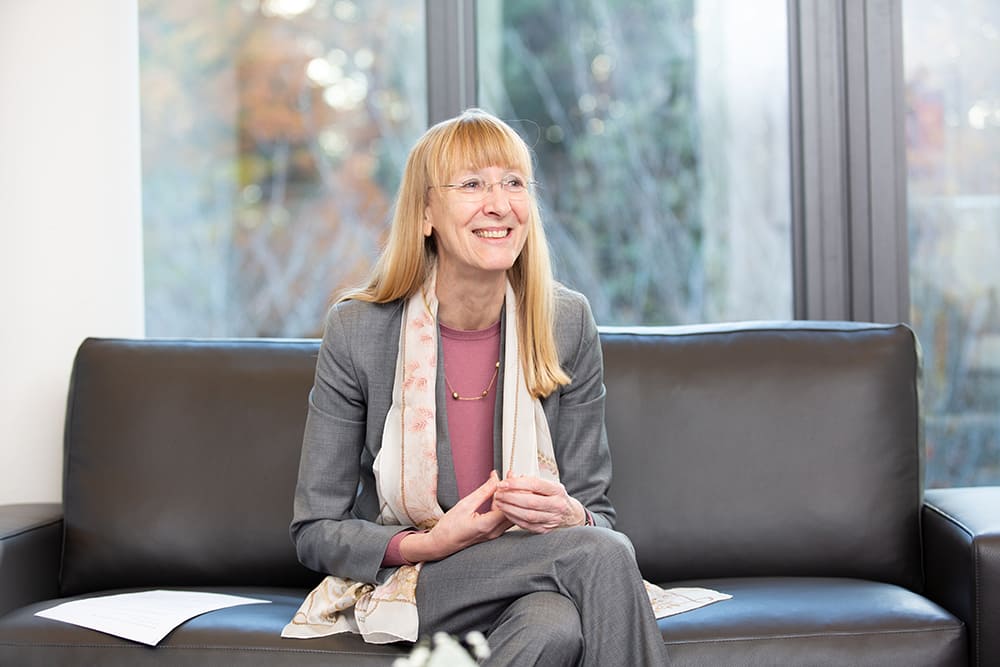
Just in time for enthronement
Lepel assumed her post as ambassador to Japan in September 2019, around 30 years after she entered the German Foreign Service Academy. She arrived in Japan just in time to witness the enthronement ceremony of Emperor Naruhito in October. As part of the preparatory process for the ceremony, which was attended by dignitaries from around 190 countries, Lepel experienced firsthand Japan’s renowned attention to detail and punctuality. “It was like clockwork, getting so many delegations with different cultures and different expectations into one system where no one had to wait and everything worked smoothly — it was fantastic, and impressive,” she remarked.
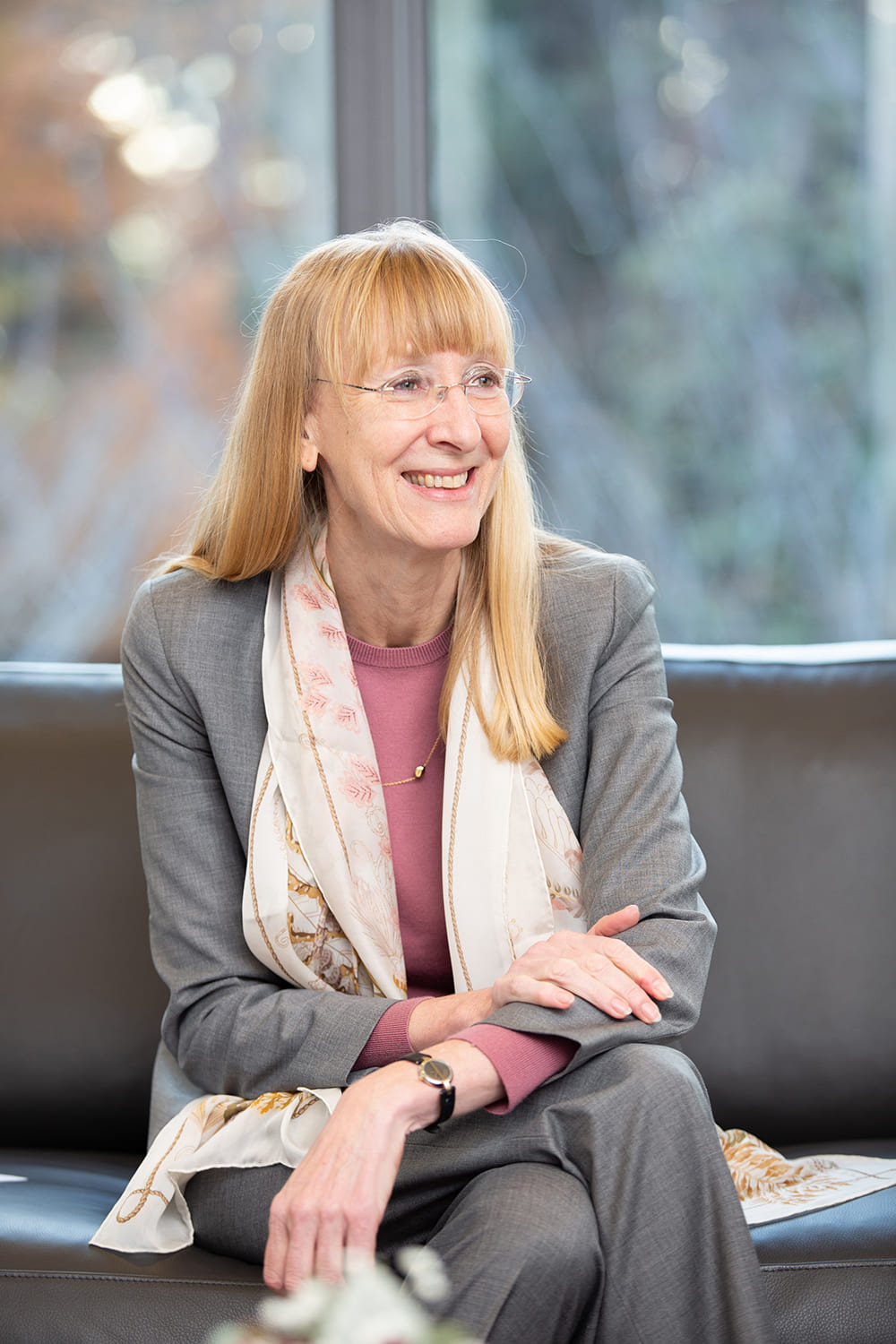
Of course, adapting to COVID-19 has also been a major aspect of Lepel’s assignment. In the realm of diplomacy, everything is contingent on bringing people together, ideally in one room. Whether it’s delegations to and from Japan or organizing events, diplomatic activities have been completely disrupted by the pandemic.
In addition to the technical issues of arranging online conference calls, Lepel noted the challenges that this extra distance poses on a “human level.” “Video conferencing makes sense for people who already know each other and have concrete issues to discuss,” she said, “but a lot of our work is getting people together who’ve never met each other before, or expanding our network. That is very difficult to do by video. Also, when it comes to accomplishing things in a video conference, it’s very difficult to overcome obstacles without the coffee breaks, when small, informal groups can discuss issues in advance.”
Aging, labor and green energy
Diplomatic gatherings are especially important for German-Japanese relations, as both countries face similar issues related to aging societies, a lack of qualified labor and energy transformation. In terms of energy transformation, both countries have made pledges to become carbon-neutral by 2050. “In Germany, we place a lot of attention on green hydrogen and are working with Japan on this,” she said. The collaborative relationship between the countries is illustrated by the German-Japanese Energy Partnership, which was signed by Germany’s Federal Ministry for Economic Affairs and Energy and Japan’s Agency for Natural Resources and Energy in 2019.
Climate action is a significant aspect of Germany’s diplomatic activities, even outside of its relationship with Japan. The country lobbies for green energy wherever it can. However, Lepel noted the importance of not coming off as “preachers” to other countries. “This transformation is difficult. We’re facing the same challenges, and I think we can learn from each other about how to convince our citizens that implementing wind power, for instance, is useful in the long run.”
German-Japanese relations are bolstered by a robust collaborative network at the grassroots level. There are more than 50 partnerships between cities, with 56 Japanese-German societies in Japan and more than 50 German-Japanese societies in Germany. These societies promote intercultural exchange and help transmit information to those who want to learn more about the other country.
Persistent stereotypes
During her tenure, Lepel hopes to promote more exchange between young Japanese and Germans. Based on her conversations with some Japanese who assume “every child in Germany plays piano and knows everything about Beethoven,” she feels there are some persistent stereotypes that aren’t necessarily grounded in reality. “I have the impression that the picture that Japanese people have of Germany, and vice versa, doesn’t really reflect what’s going on in both countries,” she said. “It’s important to get the younger generations more involved and more exposed to the modern reality of the countries.” She also noted the steady decline of Japanese students studying abroad and hopes more students will choose to study in Germany once the pandemic subsides.
Women’s issues in Japan is also an area of interest for Lepel. While Germany is ranking No. 10 and Japan is ranking 121st in the World Economic Forum’s Global Gender Gap Report, Lepel noted that this disparity between the countries is significantly reduced if one looks only at the private sector.
Reflecting on the progress made, and the work to be done, Lepel recalled her reaction to a photo of the signing of the Dayton Peace Agreement, which she saw on social media last month as it was being remembered for its 25th anniversary. No women appear in the photo. “I thought, wow, this kind of picture wouldn’t be allowed today. Today, there would be some women there because we now have the U.N. Security Council Resolution 1325 that affirms ‘no peace process without women.’ I suppose this shows how priorities have changed over the years.”
